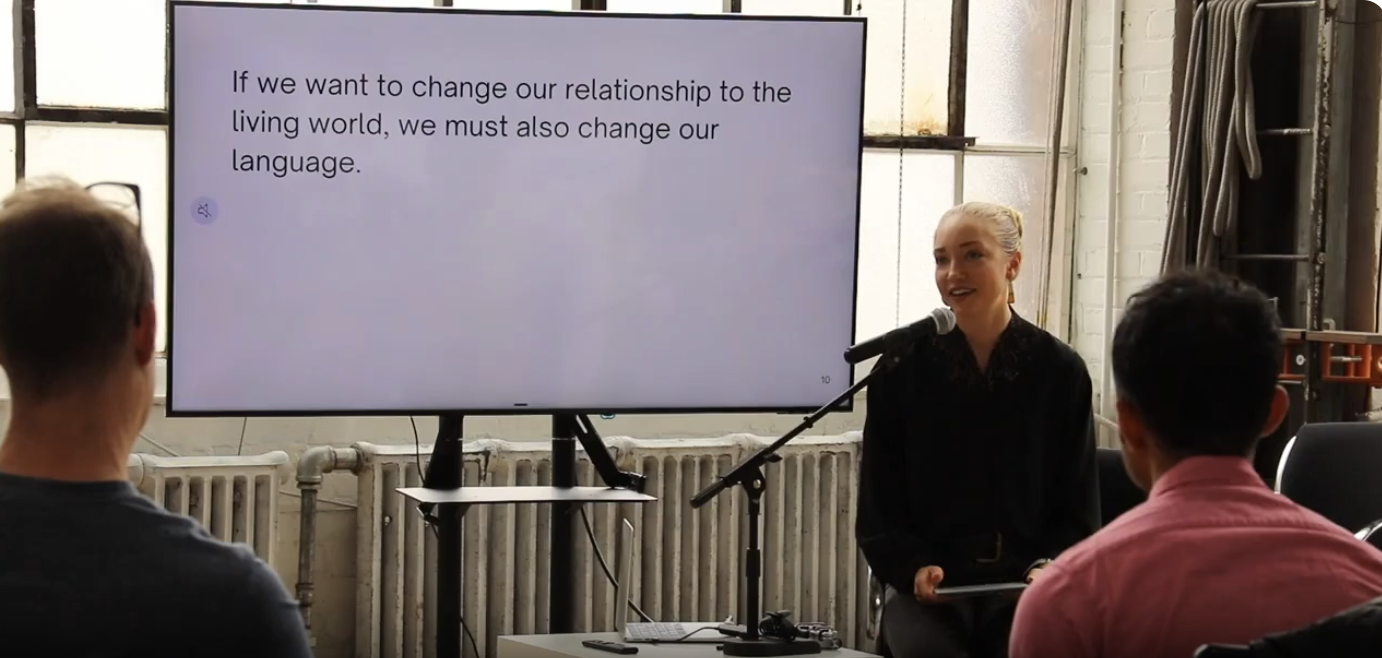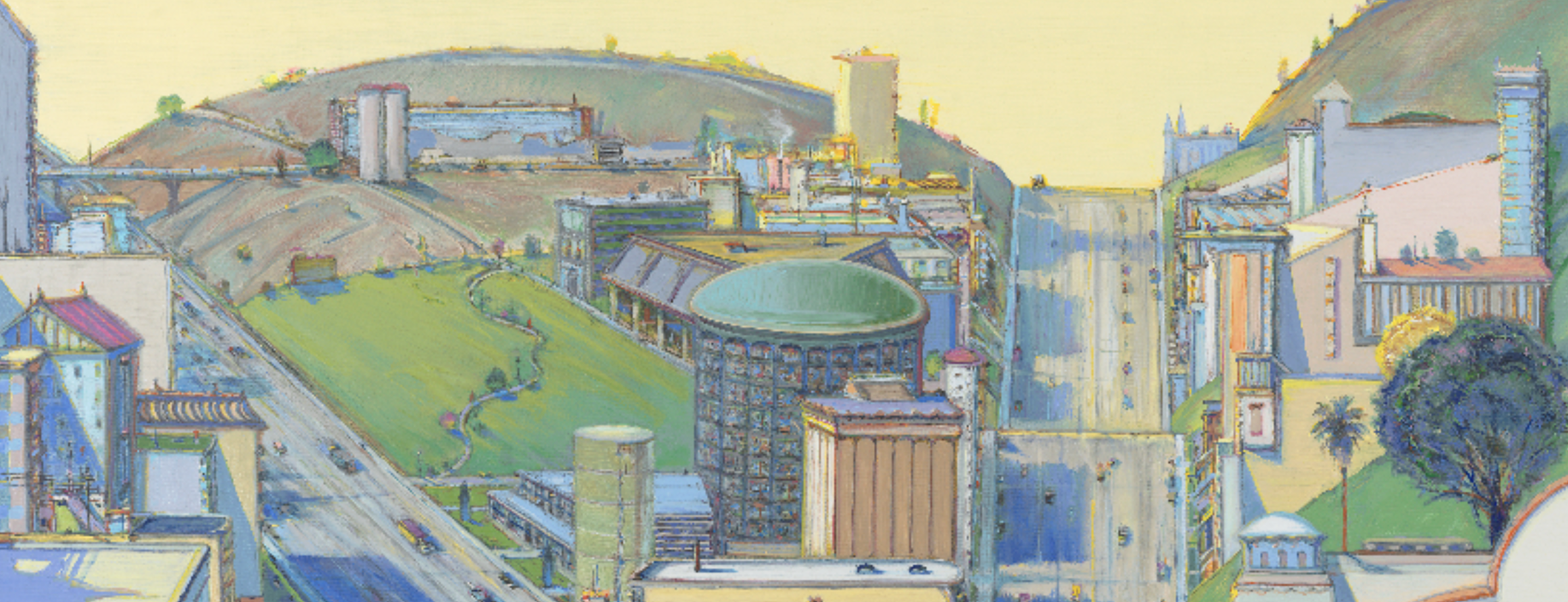
Julia Bunte-Mein

Symposium
action shot!
What did you explore in your Residency?
During this Residency, I developed frameworks for designing technology that supports both human and planetary flourishing, and explored a thesis: that computation and the physical world represent the next frontier for scientific R&D. As you may intuit, these go together:)
Our technology today allows us to collect more, higher quality, and context-specific physical data from living systems, which means we can unlock biological intelligence that was previously a mystery. Moreover, the rate of scientific discovery is accelerating as AI models learn from experimental data faster than humans can generate insights alone. Through AI, life can now be decoded and programmed. This power can be used to weaponize, commoditize, and extract—or it can be used to turn waste into resources, make people healthier and happier, and decarbonize our industries.
This was a winding (and very fun!) journey. I explored the intersection of the biosphere and the technosphere from multiple perspectives, beginning with philosophy and linguistics, transitioning into the speculative and creative, and ending with a lens on economics, computer science, and life science research. The multidisciplinary nature of this inquiry reflects my own background across climate tech, finance, social science research, and the arts.
Key insights and learnings
The physical world is the next data frontier. AI has reached incredible capabilities but is limited by internet data that only captures human-generated information. The next frontier lies in biological data—nature's 3.8 billion years of evolutionary intelligence could teach AI systems to understand living systems at scales from cellular to planetary, unlocking breakthroughs in food production, materials, biodiversity restoration, and climate adaptation.
Biology represents our most complex science. Biology is an inexhaustible wellspring for innovation, spanning bio-LLMs, brain-inspired robotics, and biomanufacturing. The question becomes: what funding structures and incentive systems would accelerate these applications in ways that support both human and planetary well-being?
Technology is relational. No technology is inherently good or bad—its impact depends on the values, intentions, and ecological contexts it's woven into.
Language matters. The shift from "controlling nature" to "cooperating with living systems" isn't just semantic—it fundamentally changes what we design and why. A better future is designed with desire, not desperation—we need visions that inspire genuine excitement, not just mitigate harm.
We need a paradigm shift beyond zero-sum thinking. Human progress and planetary health are not in opposition—they're interdependent. Long-term economic growth and innovation depend on ecological flourishing, not despite it. The engineered, the algorithmic, the computational can bring humans into deeper alignment with living systems, if designed thoughtfully. Shifting from extractive to regenerative technologies means creating innovation that restores connection, deepens meaning, and enhances flourishing across all scales—personal, cultural, and planetary.
False dichotomies limit our imagination. Labels like "synthetic vs. natural," "algorithmic vs. organic," or "engineered vs. living" create overly rigid boundaries. The natural world is full of computation and intelligence. Digital systems form ecologies. Technology exists on a spectrum, not in opposition to biology—it emerges from it. Recognizing this continuum expands what's possible—not just for technology, but for reimagining what it means to be human and how we might flourish alongside other forms of intelligence.
What's next?
Translating these research questions into tangible applications and products. Building community around these topics. Looking at:
• building at the intersection of computation & the physical world
• how AI can accelerate scientific discovery through lab automation and experimental iteration
• biological data, materials science (synbio, food/ag, advanced materials)
Favorite memory from the Residency
All the in-between moments where I got to know the other residents - afternoon coffee walks, soaking in the sun on the patio, discovering so many new art galleries and bars in the Mission, that somehow I missed in the 5 years of living in SF.
How has Interact shaped your relationship to technology?
This Residency made me ask different questions: Who does technology serve? Who gets to decide? Who is controlling our technology, or is our technology controlling us? What makes technology "regenerative"? Is technological intervention ever a net good thing for the environment in the long-term? How do we design with empathy—for humans and the living systems we're part of—while building incentives for long-term outcomes? What technological truths have remained constant for generations—despite humans' tendency towards myopia—and what are actually novel inflection points?
About Julia
Julia Bunte-Mein explores the intersection of AI, biotechnology, and climate—asking how breakthrough technologies can support flourishing rather than extraction. Her experience spans building products at multiple climate startups, creating more positive, meaningful user experiences at Meta, and early-stage investing. A creative technologist, artist, and writer, Julia is endlessly curious student of the world.
Artifacts & Links
